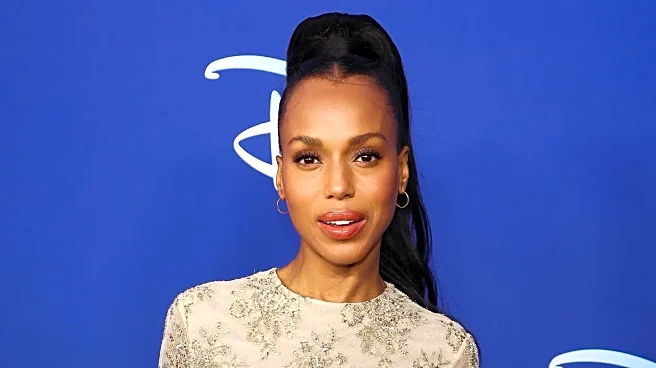What's Happening?
Aubree Jones, an Australian mother, recently faced significant backlash after revealing her newborn daughter's name, Disney Mae Jones, on TikTok. The announcement, which was accompanied by Disney-themed
imagery and the iconic Disney jingle, sparked controversy among viewers. Critics questioned the appropriateness of naming a child after a major corporation, with some suggesting potential legal issues and emotional consequences for the child. Despite the criticism, some defended the mother's choice, arguing for parental rights in naming children. This is not the first time Aubree and her husband Josh have chosen unique names for their children, as Disney Mae joins siblings Trendy, Sunny, Zaylee, Truly, and Journey.
Why It's Important?
The controversy surrounding the naming of Disney Mae Jones highlights broader societal debates about parental rights and the implications of unconventional names. Such discussions can influence public opinion and potentially impact naming conventions and legal frameworks regarding naming rights. The backlash also underscores the influence of social media in shaping public discourse and the scrutiny individuals face when sharing personal decisions online. This incident may prompt further examination of cultural norms and the balance between personal expression and societal expectations.
What's Next?
The ongoing debate may lead to discussions about the legalities of naming children after corporations, especially in countries with specific naming regulations like Australia. It could also spark conversations about the role of social media in personal decision-making and the potential need for guidelines to protect individuals from online criticism. As the story gains traction, it may attract attention from legal experts, social commentators, and advocacy groups interested in children's rights and parental responsibilities.
Beyond the Headlines
This incident raises questions about the cultural significance of names and their impact on identity and self-perception. It also touches on the ethical considerations of naming children after brands, which could have long-term implications for the child's social interactions and personal development. The story may contribute to a broader dialogue on the commercialization of personal identity and the influence of corporate culture on family life.










